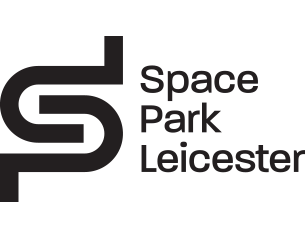Space Park Leicester to be showcased at the world’s premier global space event in Paris
The University of Leicester’s long-standing heritage of space science, engineering, technology instrumentation and manufacturing will be showcased at the world’s premier global space event in Paris next month.
Executive Director of Space Park Leicester Professor Richard Ambrosi, an expert in space instrumentation and space nuclear power systems, along with a team of engineers and scientists will represent Leicester’s vibrant academic and industrial space community at The International Astronautical Congress 2022 taking place at The Paris Convention Centre (18 – 22 September).
The University of Leicester has a long record of space research, dating back more than 60 years. During that time the University’s experts have been involved in more than 20 launched missions and there has been at least one Leicester-built instrument operating in space since 1967.

There are currently eight Leicester-built instruments in space, the most recent of which are the Mercury Imaging X-ray Spectrometer (MIXS) currently onboard ESA’s BepiColombo mission to Mercury, and the UK-led Mid-Infrared Instrument (MIRI) for the James Webb Space Telescope. Respectively, these instruments and missions will transform our understanding of the Solar System, our galaxy and the Universe.
Professor Richard Ambrosi said: “IAC is one of the most important events in the space sector’s calendar that brings together the global space community.The most recent conferences have attracted more than 6,500 participants from more than 80 countries. I am delighted to be attending to showcase the fantastic heritage of the University of Leicester and the state-of-the-art facilities at Space Park Leicester, which will transform the way that space instrumentation, technology and satellites are conceived, designed, operated and produced.”

Professor Richard Ambrosi, Executive Director, Space Park LeicesterCurrent priorities include the delivery of several instruments to the European Space Agency such as the Soft X-ray Telescope for the Solar wind Magnetosphere Ionosphere Link Explorer Mission (SMILE). In addition, the Leicester team are developing a number of new technologies and instruments for a host of future space science missions. The outer solar system, Mars surface, lunar surface, UV and X-ray astronomy are among the themes occupying the scientists and engineers at the University of Leicester. Enabling technologies include high performance sensors and detectors, a one-of-a-kind double-walled isolator for the NASA-ESA Mars sample return mission and radioisotope power technologies for space science and exploration.
Teams of scientists are addressing some of the most pressing global challenges including climate change, air quality, the measurement and quantification of greenhouse gases, forest and ocean monitoring. The headquarters of the National Centre for Earth Observation the presence of the University of Leicester’s Centre for Landscape and Climate Research and the Earth Observation Science Research Group aggregate one of the largest groupings of Earth focused of scientists and researchers in the U.K.
Professor Ambrosi added: ““We are hugely proud of Leicester’s long-standing role in the UK space sector, and we continue to work with both national and international partners on some of the biggest and most exciting space missions and technologies which are at the leading edge of space research.
“Space Park Leicester is a cluster of scientists, students and partners that form a vibrant academic and industrial community. It is collaborative, it unites industry and staff – it’s these close links that can really help to accelerate scientific discovery and generate utility beyond science and enable the UK to capture a greater share of the growing global space sector.”
The £100 million facility is led by the University of Leicester in partnership with Leicester City Council and the Leicester and Leicestershire Enterprise Partnership (LLEP), Research England, NERC and the Wolfson Foundation.
Future plans will build on the park’s exciting community of international, national and local industries in space, Earth monitoring, engineering, digital health, environmental management and monitoring, data and digital, optical systems and UK Government agencies. Lionel Suchet, Chairman of the IAC 2022 Local Organizing Committee, said: “For IAC 2022, our motto is “Space for @ll”: we will be reaching beyond the space community to bring together all communities along with the burgeoning global ecosystem of start-ups, entrepreneurs, laboratories, research scientists and manufacturers likely to get involved in space activities or benefit from them. We will offer great opportunities for networking and forging contacts and potential partnerships. We look forward to welcoming Space Park Leicester to Paris!”


